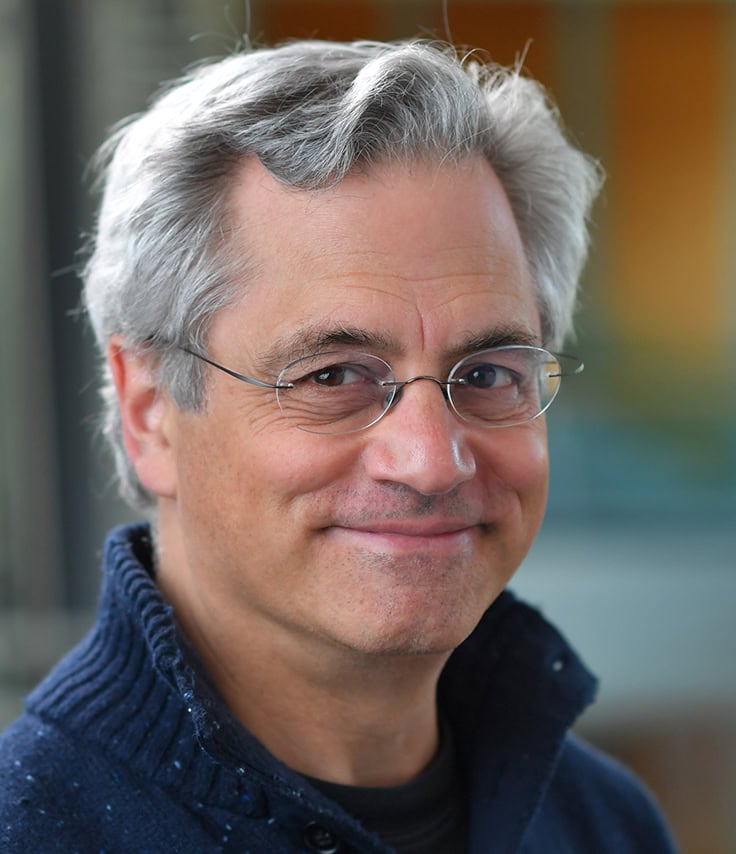Biosketch
Gary Yellen is a biophysicist and neuroscientist recognized for his work on the moving parts of ion channel proteins and on the dynamics of neural metabolism. He earned his AB in Biochemical Sciences at Harvard College and then his PhD in Physiology at the Yale University School of Medicine, advised by Charles F. Stevens. After a postdoctoral fellowship with Christopher Miller at Brandeis University, he joined the faculty in the Department of Neuroscience at Johns Hopkins University School of Medicine in 1986, as an Assistant Investigator of the Howard Hughes Medical Institute. He has been on the faculty at Harvard Medical School since 1992, where he is currently the George Packer Berry Professor of Neurobiology. Yellen has served on the editorial boards of the Biophysical Journal, the Journal of General Physiology, Neuron, and eLife. His awards include the K.S. Cole Award for Membrane Biophysics, an NIH Director’s Pioneer Award, and a Javits Neuroscience Investigator Award.
Research Interests
Our research examines the connection between neuronal activity and cellular metabolism, motivated by the remarkable ability of ketogenic diet to effectively treat refractory epilepsy. We use electrophysiology to investigate the role of K(ATP) and other ion channels in modifying neuronal excitability depending on metabolic conditions. We have also developed a series of engineered-protein biosensors to visualize changes in ATP, NADH, and other metabolites to peer inside the black box of metabolic dynamics, and we use fast fluorescence lifetime imaging of these sensors to learn how energy metabolism within neurons responds rapidly to meet the acute energy demand of neuronal stimulation. The ability of brain cells to use a variety of metabolic fuels to meet these intense metabolic demands is crucial for the proper function of the brain and can go awry in brain injury and disease. Earlier in my career, we studied the “moving parts” of ion channel proteins, using blockers, cysteine modification, and engineered metal bridges to reveal the functional motions involved in voltage-dependent channel gating.
Membership Type
Member
Election Year
2024
Primary Section
Section 23: Physiology and Pharmacology
Secondary Section
Section 24: Cellular and Molecular Neuroscience
